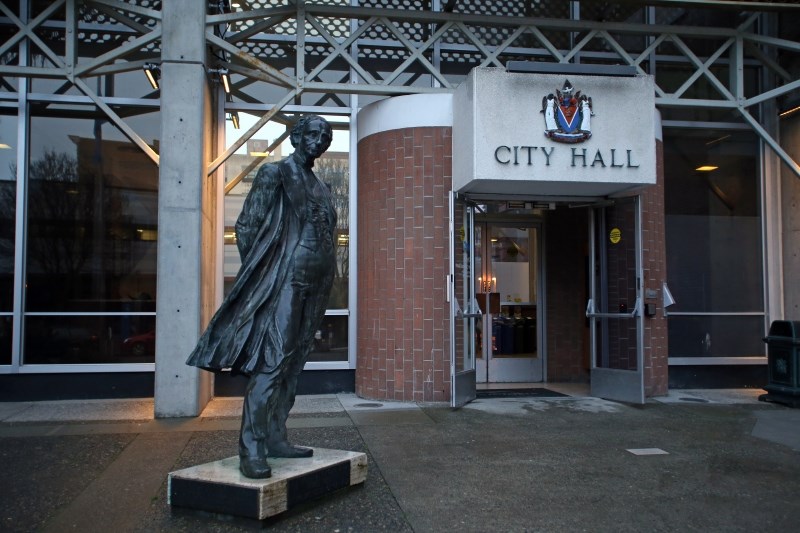The idea of establishing a living wage policy didn’t gain much traction with Victoria council committee members this week, even though the city already pays more than the suggested benchmark.
In fact, setting a living wage benchmark of $18.93 an hour — even as a symbolic gesture — could backfire on the city, Coun. Shellie Gudgeon warned colleagues.
“I’m concerned that the political statement of judgment that it puts on small business owners is not balanced. … The ‘living wage’ would bankrupt most of our small business economy,” said Gudgeon, adding that many residents might blanch to hear how well city employees are paid.
The Community Social Planning Council of Greater Victoria calculates the living wage based on the cost of a “basket” of goods, such as housing, based on a three-bedroom rental, toiletries, child care for a four-year-old and a seven-year-old, health-care coverage and a small allowance for parents to upgrade their skills. It does not include the cost of paying down existing debt or saving for home ownership, retirement or a child’s post secondary education.
The calculation for 2014 is $18.93 per parent in Victoria but could be reduced by 99 cents an hour if the family didn’t have to pay medical services plan premiums, or by $4 an hour if universal daycare at $10 a day was in place.
The city’s lowest paid employee makes $23.72 an hour — well in excess of the living wage.
Gudgeon said establishing a living wage might be a “good symbolic statement,” but said entrenching it in policy might send out a message to retailers that they don’t measure up, if they don’t pay that rate.
“If it’s not clear what the statement is that the city is making, the sound bite [becomes]: ‘You are less than.’ If you are a business owner and you pay less than $19 an hour, you’re not a good human being,” she said.
Gudgeon said not only would a $19-an-hour minimum bankrupt most small business owners, it would destroy a huge pool of entry-level jobs.
Coun. Marianne Alto had suggested a review of the city’s wage policies be conducted to determine how many city employees earn less than the living wage; analyze how a living wage policy might affect those wages, and whether application of a living wage policy would affect the city’s operational budget.
Alto said such an examination would be a first step toward the city adopting a fair wage policy.
She acknowledged it would be largely symbolic because the city already pays wages and benefits in excess of $18.93.
The policy would not be about “raising the financial reward of our existing staff,” but rather about the city taking a leadership role “in establishing an expectation of a collaborative common good,” Alto said.
While the message is important, Alto said, “This is not about ‘you’re bad.’ It’s about ‘we’re good.’ There’s a subtlety there that would really have to be carefully considered.”
Coun. Lisa Helps said that, in principle, a living wage policy “is awesome,” but the reality is 50 per cent of Victoria residents have incomes of less than $28,000 a year after taxes — nowhere near the living wage.
“I think if we want to show leadership, then we need to foster and support a small business community … and attract well-paying jobs … [and] opportunities for advancement.”
The committee, which includes non-elected citizen members, took no action on the proposal and will discuss it again in early November.



